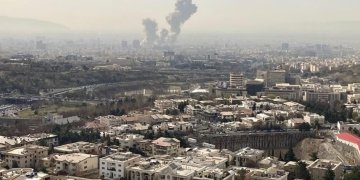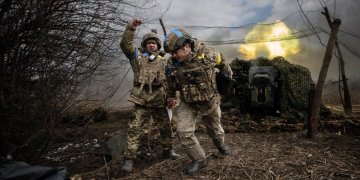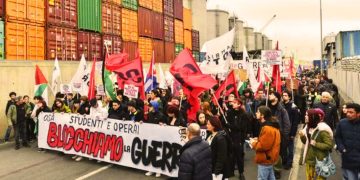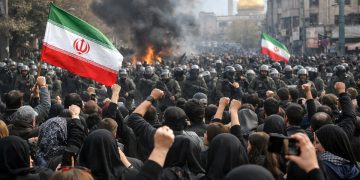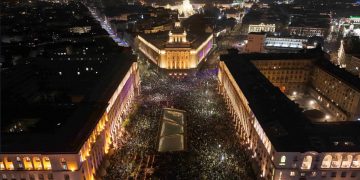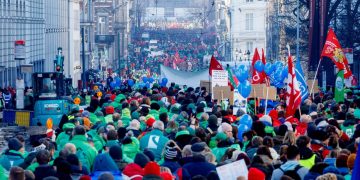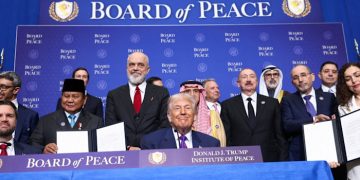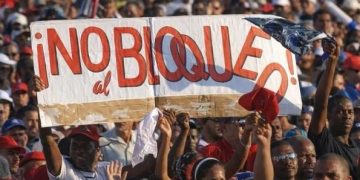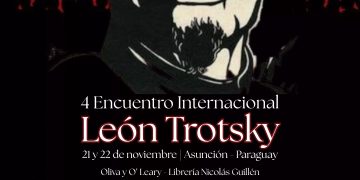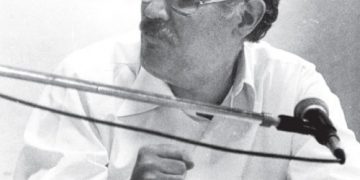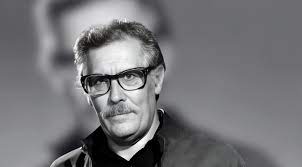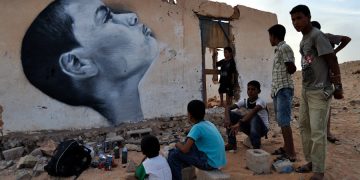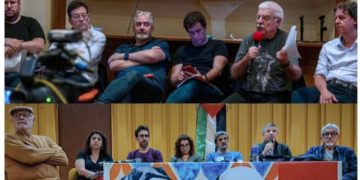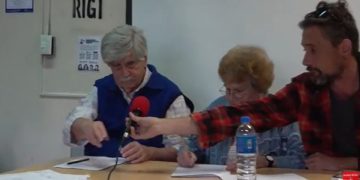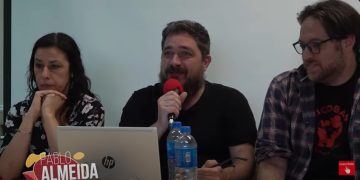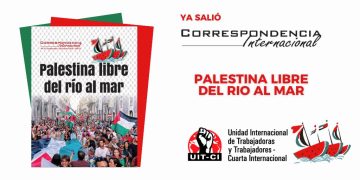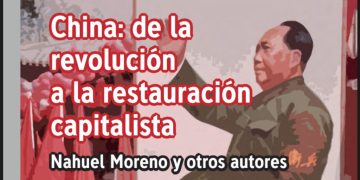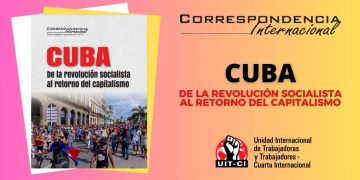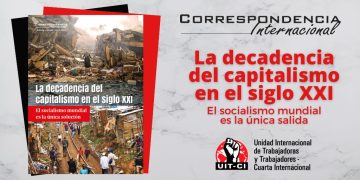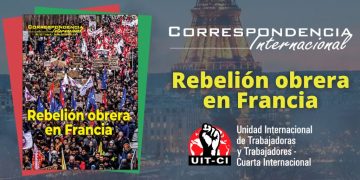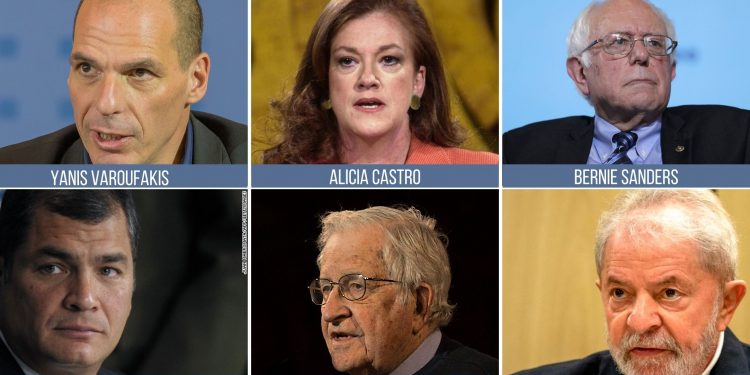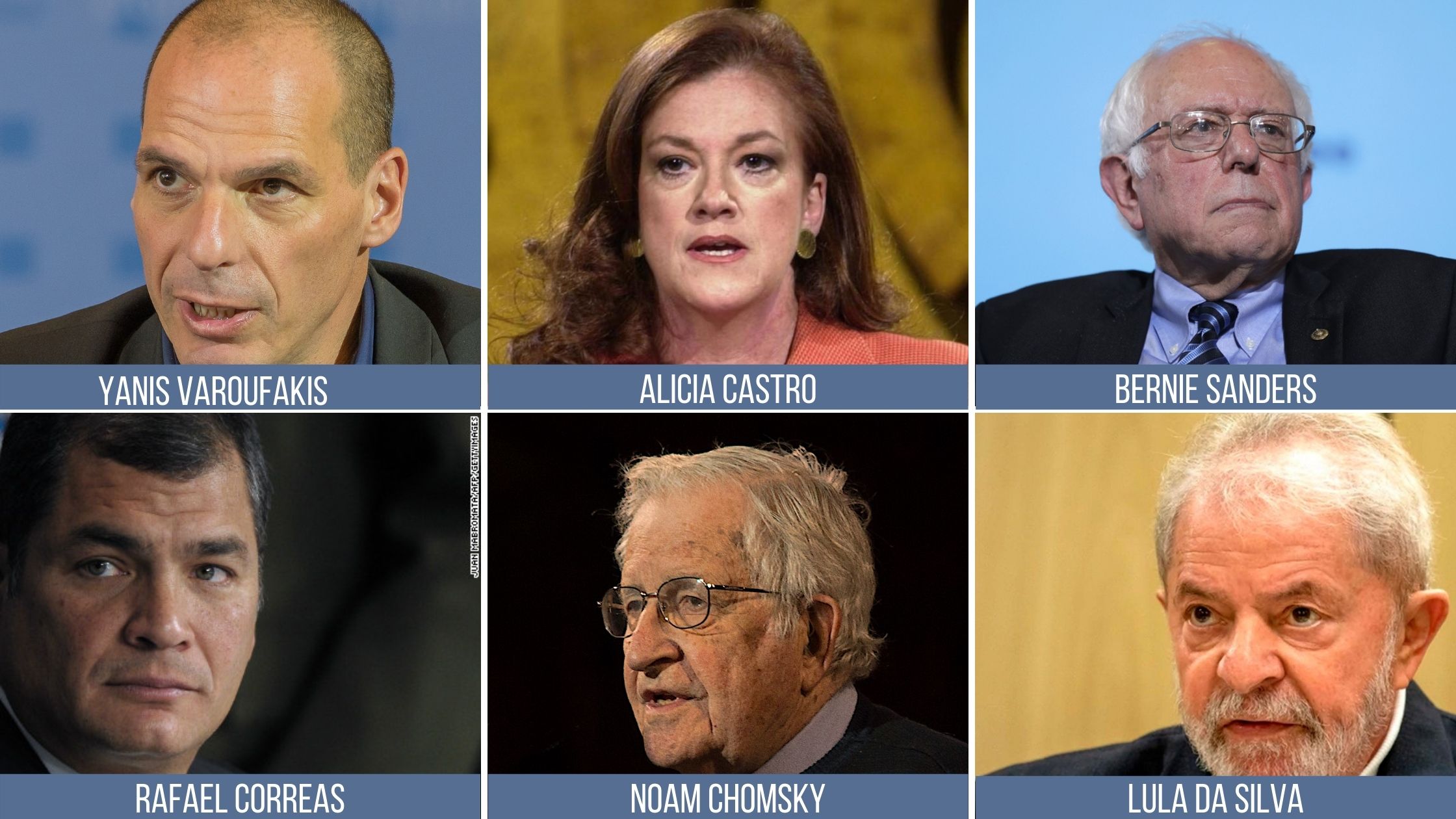 By Simon Rodriguez (IWU-FI)
By Simon Rodriguez (IWU-FI)
The first virtual summit was held between 18 and 20 September. With the presence of moderate intellectuals and celebrities, the grouping is an attempt to recycle projects that have been widely surpassed by the concrete political experiences of the peoples and workers, in view of the exhaustion of the Latin American «pink tide,» the sinking of Syriza in Greece, Sanders’ refusal to break with the Democratic Party, and the popular rebellions that covered much of the world in 2018 and 2019.
The top leadership of the Progressive International includes the famous anarchist linguist Noam Chomsky; the social-democrat Senator Bernie Sanders; Cornel West of the DSA, former Greek Finance Minister Yanis Varoufakis; writers Naomi Klein of Canada and Arundhati Roy of India; Icelandic Prime Minister Katrin Jakobsdottir; former Barcelona Mayor Ada Colau; presidential candidate Luis Arce and former Vice President Alvaro García Linera of the Bolivian MAS; Andrés Arauz, presidential candidate of the correismo in Ecuador; former Brazilian president Lula da Silva and his former minister of foreign relations Celso Amorim; former mayor and former Colombian presidential candidate Gustavo Petro; Argentine minister Elizabeth Gómez; Chilean parliament member Giorgio Jackson; Cameroonian philosopher Achille Mbembe; Chavista intellectual Vijay Prashad from India; Victor Santa María, from the Peronist trade unionism, and Ambassador Alicia Castro from Argentina, among others.
The speeches of Chomsky and Varoufakis illustrated the limitations of the project. For Chomsky, there are two internationals in the process of formation, a reactionary international, headed by Trump, that includes Bolsonaro, the Egyptian dictator Al Sisi, the governments of Israel and India, the multilateral financial institutions such as the IMF and the World Bank, and the right-wing Hungarian Prime Minister Victor Orban. Its characteristic feature would be authoritarianism. The Progressive International would have its bastion among the «popular movements». In today’s world the neo-liberalism of Reagan and Thatcher would predominate, and one of the primary tasks of the Progressive International would be «to ensure that we all panic now and act accordingly». According to this frame it is to be expected that «democratic» capitalist governments would be susceptible to reacting to these «progressive» alarms.
Varoufakis installed the notion that we are already entering a post-capitalist stage; the dilemma is whether the economy «will be authoritarian and oligarchic or democratic and social». Faced with environmental disaster, he proposed an «international ecological agreement» that, with a budget of $8 trillion a year, could carry out the transition from fossil fuels to renewable energies, reduce meat consumption and develop the production of organic foods. He considers this is a challenge similar to the reconstruction of Europe after World War II, although it is not only about rebuilding but also about creating new technologies.
If Varoufakis affirms that «capitalism is not compatible with the survival of humanity,» the lukewarmness of his proposals does not correspond to that judgment. He calls to identify specific multinational companies «that abuse workers» and carry out boycott days, for example, against Amazon. Which multinationals do not abuse workers? The problem of the union bureaucracy and the organizational needs of the working class are eluded through boycotts: it is a false solution . Varoufakis believes that the world of money and finance is detached from the world of production (!) and that the strategic way out is a market socialism (?) under the principle of «one employee, one share, one vote».
Its theoretical axis is the democratization of capitalism, and its antagonist is not the capitalist class as a whole but only the tendency represented by Trump. It is not by chance that the Movement for Democracy in Europe (DiEM25), which Varoufakis represents, supported by Ada Colau, Baltasar Garzon, green party politicians and philosophers such as Toni Negri and Slavoj Zizek, is driven by goals such as democratizing the European Union.
The seriousness of this historic crossroads, where the health crisis of the Covid-19 pandemic, a global economic recession, environmental degradation and global warming overlap, is undeniable. For revolutionaries, the fundamental solution is for working-class governments to establish a socialist economy, democratically planned with criteria of sustainability and at the service of the popular majority, at the regional and world level. For the self-styled progressives, the realm of the possible is reforms in the capitalist framework, democratizing the bourgeois states, the multilateral institutions like the IMF and even the transnational corporations.
In any case, these are not mere theoretical differences. The concrete experience of Latin American working class with «progressive» governments like those of Correa, Evo Morales, Lula da Silva, Cristina Kirchner, Pepe Mujica, Chavez and Maduro resulted in failures plagued by corruption, selling out and atrocious environmental depredation, which paved the way for the right-wing in the continent. None of these governments tried to overcome the capitalist relations of exploitation; all made pacts with imperialism and the national bourgeoisies. The majority of these governments even sent occupation troops to Haiti. Chavismo refrained from doing so, but instead promoted the corrupt deals of Petrocaribe with the puppet governments of the same UN military occupation in Haiti. In the popular struggles of 2018 and 2019, «progressivism» played a disastrous role. For example, Giorgio Jackson and the majority of the deputies of the Chilean Frente Amplio, in the midst of the popular rebellion against Piñera, made a pact to keep him in power, even voting for repressive laws, like the so-called «anti-pillage law». The frustrating experience of Syriza in Greece or Ada Colau in Catalonia, among others, left similar results.
If the progressiveness of the new organization is quite faded, its internationalism is an even worse caricature. The writer and former Syrian political prisoner of the left, Yassin al-Haj Saleh, accepted the invitation to participate in the Progressive International in April. But when he sent his first open letter to the Wire, the web page of the Progressive International, he was censored and excluded, without explanation. There was no space for his criticism of the capitulations of different sectors of the left to the Syrian dictatorship, the shameful apology of Russian military aggression and the indifference towards the greatest international crime of this century, which has [p8] driven over six and a half million people into exile, about 30% of the Syrian population, a country militarily occupied by Russia, Iran, the United States, Israel and Turkey, as well as by Pakistani, Lebanese, Iraqi and other militias. We Venezuelan revolutionaries are in solidarity with Yassin al-Haj Saleh, since we have seen that in our country thousands of people killed by police execution squads and millions of workers oppressed by semi-slavery relations with monthly wages of $2, do not count for that pseudo-left either. Ignorance and intellectual arrogance are combined to produce this «progressive» deep hostility towards the Venezuelan working class, contributing to isolate it from internationalist solidarity, as it also happens with the Syrian people.
Such is the political and moral bankruptcy exhibited by the Progressive International. In the anthology of reformism, it can occupy a place close to failures like Chavez’ «fifth international,» the Sao Paulo Forum or the Puebla Group. It is not the internationalist organization we need for the revolutionary overthrow of this capitalist system of human exploitation and environmental depredation.








